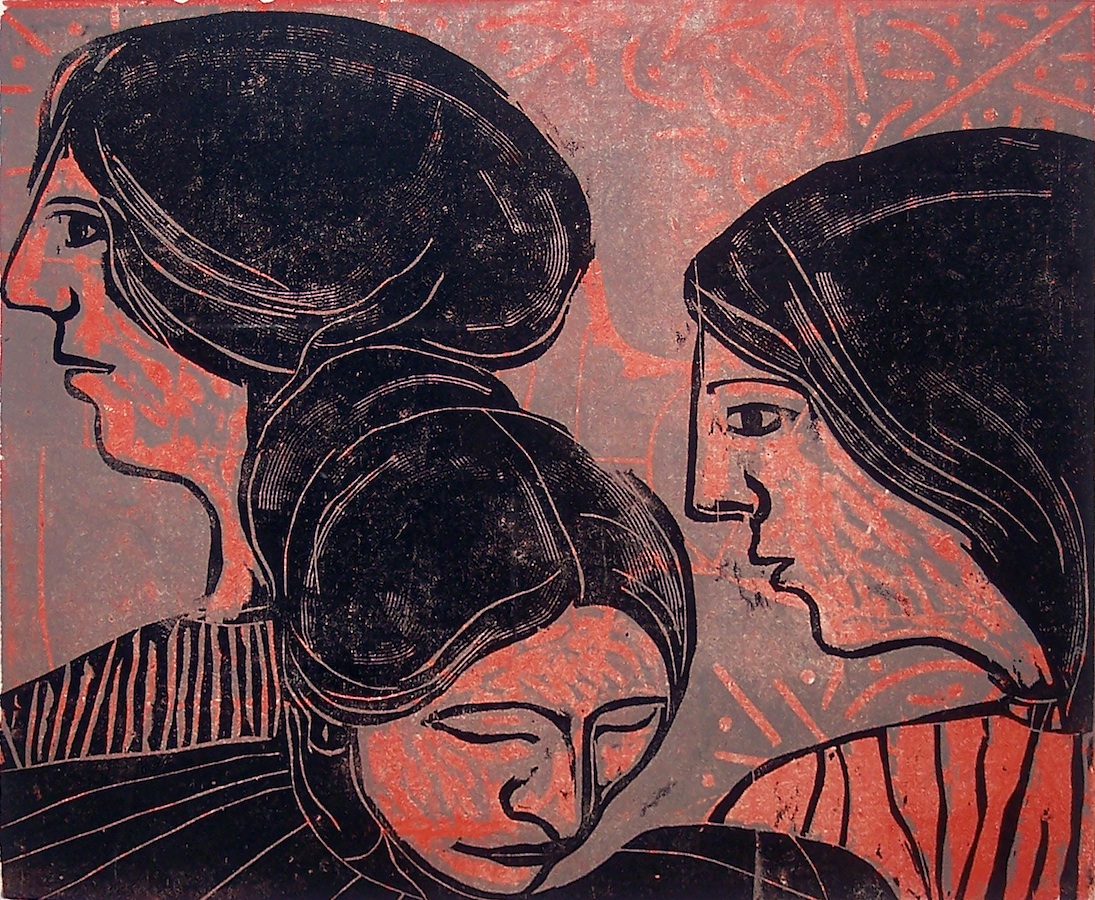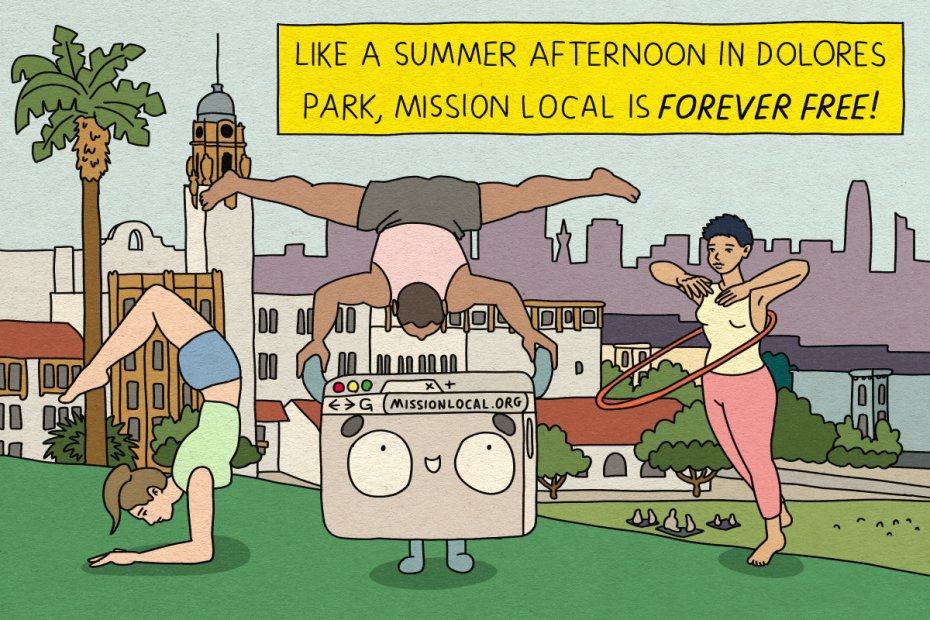For victims of domestic violence, sheltering in place can mean more abuse
Nonprofits that work with victims of domestic violence said they fear that the shelter-in-place policy has made it more difficult for victims to call for support, giving abusers more control and making their own jobs exceedingly difficult.
“Here’s the reality: our hotline is ringing,” said Kathy Black, executive director of La Casa de las Madres, an organization in the city that responds to calls for help from domestic violence victims 24 hours a day, seven days a week.
“We hear stories of people being told, ‘if you go out, I’m not gonna let you back in … you’re not allowed to go outside,’” Black said. “I heard people say that they think there’s martial law.”
While their hotline at La Casa has not seen an increase in calls, she worries about what this indicates.
“A lot of women are probably not able to make a phone call if they are sheltering in place,” she said. “They don’t have any place of their own to call from and if their abuser found out that they’re calling for help, it might only escalate what’s already a bad situation.”
The National Domestic Violence Hotline also said that it has not seen an increase in the calls they get nationwide.
“However, we are seeing an increase in the number of survivors reaching out who [are] concerned with COVID-19 and how their abusive partner is leveraging COVID-19 to further isolate, coerce, or increase fear in the relationship,” said said Katie Ray-Jones, chief executive office of the national hotline.
“Between March 10 and March 24 we have had 951 contacts who have mentioned COVID-19,” Ray-Jones said.
“Just being home with the person who inflicts the abuse definitely can escalate things,” said Mary Martinez, associate director at Women Organized to Make Abuse Nonexistent or WOMAN, Inc. in SOMA.
Martinez said that COVID-19 and the shelter-in-place policy has had some unique consequences. “We heard from someone who was trying to leave their situation and they drove off and their abusive partner was able to follow them for a while because there’s no traffic,” Martinez said. “Luckily this person was able to get to a safer place and kind of lose their abusive partner on the road.”
At WOMAN, Inc., Martinez said that they have seen a slight increase from their normal number of calls.
“What’s increasing is the escalation that happens in the homes,” because of added stress and anxiety, she said.
“It’s already stressful to go out and get groceries … having the kids there all day, everyday, and being expected to homeschool them, it just adds up for everyone,” Martinez said. “It can, unfortunately, sometimes end up in an abusive partner taking that out on the survivor.”
Ray Jones added, “In homes where abuse is already occurring, and there is a negative financial impact or added stress in the home, we typically see a higher frequency of incidents of abuse and increased severity of abuse.”
Martinez said that it can be worse for communities of color, and the LGBTQI+ community, whose members might not have basic resources available to them.
“For those who also have challenges like living in an abusive relationship, being in quarantine is also another layer of risk,” said Nicole Santamaria, executive director of Mission-based El/La Para TransLatinas. “The actual crisis that COVID-19 brought to our trans community, has been quite challenging.”
Santamaria said that they are especially concerned for those who are most vulnerable, such as those who are also navigating homelessness, who have mental health challenges and compromised immune systems, and those recently unemployed due to the pandemic.
All of the nonprofits are having to reinvent how they communicate with and console their clients, using the telephone and Zoom meetings.
“All these places that normally people go in and ask for help are not open,” said Black from La Casa.
“A lot of our clients who walk over from the Mission, stop by, get a cup of coffee, talk to somebody, get some resources for the day and head out, this is not a reality anymore, “Black said. “Not right now.”
The shelter-in-place mandate is supposed to end on April 7. But with the possibility of extending the mandate for longer, domestic violence hotlines and organizations are figuring out better ways to reach those who cannot call or text for help.
“Right now we don’t have a long term plan,” said Martinez. “It’s more of doing what we are currently doing and adapting it and changing it as the time goes and to what we’re hearing coming up with folks.”
Before, Martinez said that she could easily turn her chair around to coordinate help with another staff member. That simple coordination is now another layer of challenge they are facing working virtually. She said it could be much more overwhelming for survivors to navigate the new systems.
“It’s been challenging for them to not meet in person with one of the staff members,” said Martinez. “My coworkers are checking with them every week to make sure that everything is okay as it can be.”
Drop-in counseling hours for survivors at La Casa de las Madres and WOMAN, Inc. are now over the phone or online.
“Sometimes just a friendly voice at the other end of the line or the texting can is comforting,” said Black.
But she knows that even reaching someone can be difficult.
“Yesterday I found myself telling people, I’m so sorry you’re going through this. Don’t hang up, I’m gonna connect you to somebody,” Black said, saying to realizes that some have been passed around to different agencies without receiving help.
“My heart breaks for so many people who can’t walk in the door and get help,” she said.
Resources:
WOMAN, Inc.’s 24/7 hotline is at (877) 384-3578. They also post resources on their Facebook page, and on their Instagram, @woman.inc, for those who cannot make a call right away.
La Casa de las Madres’ 24/7 crisis line is at (877) 503-1850 and (877) 923-0700. Their text line is at (415) 200-3575. La Casa’s drop-in counseling center is closed until April 7, but their shelter is still open for survivors needing help.
Survivors can reach out to The Hotline at 1-800-799-7233 or chat online through their website at www.thehotline.org, or text “loveis” to 22522.
“The Hotline can help support victims and survivors and strategize ways they can stay safe in their unique situation,” said Kay-Jones. “We can determine which resources are available now.”
Martinez also wanted to remind organizations working with survivors to update their programs and schedules on the Domestic Violence Information and Referral Center to update the Shelter Census and better coordinate with all member organizations in accessing help for survivors calling everyday.
If you are a regular reader — or simply want to support local news — Mission Local could use your help now. Thank you and be well.



Dearest Sir/Madam.
Am glad to hear from you.
This is a great opportunity.
You’re Satisfaction is our first priority.
This is my favourite responsibility.
Regards Aweys Hassan Hussein
For those domestic violence, sexual assault, and stalking survivors who would like to seek a restraining order for their protection, the San Francisco Superior Court remains open and available to them during the COVID-19 crisis and shelter-in-place orders. The crisis lines at W.O.M.A.N., Inc. and La Casa can assist survivors in obtaining appointments with the Cooperative Restraining Order Clinic (“CROC”), a free legal services agency for domestic violence, sexual assault, and stalking survivors.
All conjecture…”might” “problably” but utterly no facts. Why are taxpayers funding people who’s job it is to wishfully think about more domestic violence calls? My sense is given the economy and end of victim mongering “Non-Profit operations like the ones in this article will be requires to show objective realoty metrics and lose their funding when they can’t. How is that too much to ask? DV is a terrible thing and we should remove the underlying cultural behavior that encourages it. Then we would actually decrease this horrible tragedy rather than passify it.
Not to rain on your parade, but 25% of the victims of domestic violence are men,
The hotline is ringing but we havent seen an increase in calls
We have seen an increase in calls mentioning a disease nobody knew about two months ago.
Gracias por esta lista de recursos. Este es un tiempo muy dificil especialmente para estas personas que estan experimentando abuso .
Just a Thank You to the wonderful organization that are offering help in these trying times..
Keep up the good work..
And please make a Donation to continue there good work…